There are numerous minerals which are vital for body to keep body fit and healthy. Calcium is one of the vital mineral that is required by the body because of its diverse capabilities. It is usually think that calcium has role in health of bones and teeth but it also has many other functions inside body.
Calcium has critical role in the nerves transmissions as well as in blood clotting. It also supports functioning of the muscles.
Table of Contents
ToggleRole of Calcium

As it is a known fact that calcium is necessary for functioning of the body and to keep it fit. It performs following roles inside body.
Teeth and bones Health
Calcium is fundamental structural unit of bones and teeth. It is advised to take sufficient amount of this mineral because it provides bones and teeth with strength and rigidity. During developing years it is very important to provide children with calcium as their bones are growing so they need more amount of calcium. In older age when bones start to decay its supply is very important for health of bones. To make bones and teeth healthy it is suggested to take it throughout the life.
Muscles function
It also have active role in the functioning of muscles. It binds with protein and makes actin and myosin. These two substances allow muscular tissues to relax and contract without any damage. When level of calcium gets down in the muscular tissues it makes them weak. It also causes pain and cramps in muscles.
Role in Nerves Transmission
Brain controls all the functions of the body through nerve cells. There is a network of nerves throughout the body which enables brain to control the body. There is a chemical present inside these nerve impulses called as neurotransmitter. Calcium regulates and facilitates to generate nerve impulses in nerves cells. So it is important mineral for regulation and coordination of nervous system
Blood Clotting
Whenever an injury occurs blood starts to flow from that injured area. It is essential for the body to stop the blood flow. If blood doesn’t stop it will result in complete loss of blood. Body has a natural process to stop this bleeding through a process called blood clotting. A clot forms at the injured area which stops further loss of blood. Calcium is essential for reaction which leads to this blood clotting process. It also has an active participation in healing process.
Hormonal Secretion
It has a role in the release of some hormones and enzymes especially involve in metabolism and digestion. For example it simulates the secretion of insulin which is a hormone and very important for maintaining the sugar level in the blood. Deficiency of insulin causes a medical condition called as diabetes
Benefits of Calcium
It is recommended to take a good amount of calcium in daily routine diet to get full advantage from it.
Bone Strength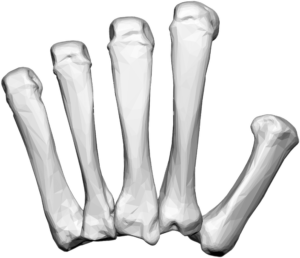
It is essential to include sufficient amount of calcium in the diet throughout the life. If body will not have its enough supply then there is more risk of bone loss and osteoporosis. During growing years of a child more amounts is needed as bones are growing. It is also essential for older adults as during this stage of life bones starts to decay.
Heart Health
Heart is powerful muscle that pumps blood throughout the body. Bloods gets clean up inside the heart. Because heart is also a muscle then it means calcium is needed for proper heart rhythm. It is also needed for the cardiovascular health.
Muscle Function
It has an active participation in the contraction and relaxation of other muscle as well. It is helpful in reducing the cramps and spasms in the muscles. So it is needed by the muscles to perform physical work.
Weight Management
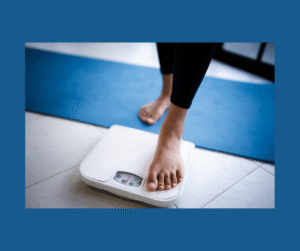
It is required in the processes such as metabolism and digestion. It is involved in the fat metabolism and appetite control. So it means that it has participation in the weight control as well.
Blood Pressure Regulation
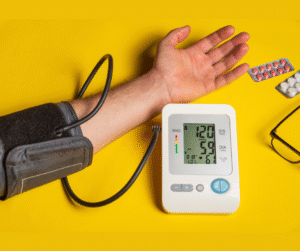
It is also helpful in maintaining blood pressure. It is involved in the cardiovascular activity which suggests that it has an active participation in the control of blood pressure. It also regulates the contraction of vessels and valves present in circulatory system.
Daily Intake of Calcium
It is advised to include stuffiest amount of this vital mineral in the diet to take full advantage from it. Its daily requirements vary according to age, gender and life stage.
Children
Children need more calcium because they are growing. Their bones, teeth and muscles are developing. So during developing year adequate supply of this vital mineral is needed. Infants fulfil their need through breast milk or formula milk. That means parents must make it sure that they are getting enough of calcium through these two main sources or not. As baby grows it must be provided by the other dietary sources to meet their body needs.
Adults and teenager
During teen years that are from 13 to 18 years of age, that is crucial time period during which bone mass accumulates and secondary development occurs. So during this stage of life there is more need of calcium to make bones and muscles strong. After this time period adulthood starts. Although body still need calcium but its requirement slightly decreases as now it is only needed for the maintenance.
Women
Women needs more supply of this vital mineral as compared to men especially after menstrual cycle, during pregnancy and breastfeeding. During menstrual cycle there is a loss of blood occurs so after it body gets weak and needs more calcium to meet bodily demands.
Pregnant women need calcium to meet the demands of fetus and herself. During pregnancy muscles and bones of fetus formulates. To fulfil the demands of fetus during last two trimester pregnant women must be provided with calcium rich food and supplements.
Lactating mother also needs more calcium because infants get it from mother through breast milk. So to meet the demand of baby as well as herself she must take foods and supplements to stay healthy and strong.
Here is a table that will guide you with how much calcium must be taken on daily basis.
| Age | Amount |
| 0-6 moths | 200mg |
| 7-12 moths | 260 mg |
| 1-3 years | 700 mg |
| 4-8 years | 1000 mg |
| 9-13 years | 1300 mg |
| 14-18 years | 1300 mg |
| 19-50 years | 1000 mg |
| 51-70 years | Male: 1000 mg Female: 1200 mg |
| Above 70 years | 1200 mg |
| Pregnant women | 1000-1300 mg |
| Breastfeeding women | 1300-1300 mg |
Calcium-Rich Foods
As it is an essential mineral so it’s very important to encompass its sufficient amount in diet. It is found in many foods so with the aid of such food items in each day diet to fulfil bodily needs. It is present in following food items.
Dairy Products
Milk and milk products like cheese and yogurt are the best sources of calcium. If a person is taking any one of them on daily basis then he fulfils almost 30 percent of his body needs. One cup of milk contains 300mg of calcium which is considered to be very rich source.
Leafy Greens
Green leafy veggies i.e. Spinach, kale and collard are also rich in calcium and iron. It is important to mention here that content of calcium in those vegetables varies however still they’ve enough amount of this vital mineral.
Fortified Foods
To increase the consumption of calcium in body there are many foods which can be fortified with it to meet the needs. For instance certain cereals, plant-based milks (which include almond, soy, or oat milk), and orange juice are fortified with calcium. It is recommended to read the label of these fortified meals to check the content material of it due to the fact calcium content varies in those food items
Nuts and Seeds
There are certain seeds like chia seeds are very rich in calcium. These seeds can be eaten directly or may be sprinkle over food to take full advantage from them. Almonds also contain sufficient amount of calcium.
Fish
There are some fish which have soft and edible bones i.e. sardines and salmon. They provide a good amount of this mineral.
Best Time to Take Calcium
It is undeniable fact that to take full advantage from calcium rich product then one must enhance the absorption of it in the blood. To make sure that blood is absorbing it full then you need to take following precautionary measurements.
Divide Dosage
It is suggested to take its smaller amount during the day to increase its absorption. If one takes larger portion at once then is a chance that it will not be fully absorbed by the blood. So it is advantageous to divide the dosage.
With Meals
In case you are taking it as calcium carbonate then it’s far better to take it with meal. Because when you take it with meals then in the course of digestion of food stomach releases acids in an effort to enhance the absorption and it will be also absorbed. But when you are taking it in the form of citrate then it doesn’t matter whether or not you’re taking it with meal or not. As in this way stomach acid doesn’t affect its absorption in blood.
Avoid High-Dose Supplements
It is also advised that do not take high dose of it at once because there is less chance that it will be fully absorbed in blood stream. It also has other negative effects so avoid taking high dose at once.
Deficiency of Calcium
It is a mineral that is required by the body for proper growth and functioning. If body doesn’t have enough supply as needed then it leads to many health issues.
Osteoporosis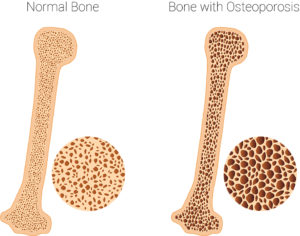
This is bones disease in which bones becomes thin and weak. These fragile bones are at high risk of fracture. It is mostly developed during old age and in women after menopause.
Rickets
This is basically bone disease that develops in children with less supply of vitamin D and calcium. It this condition bone of children becomes soft and weak. It results in delayed growth and other bones issues. They may have difficulty in movement.
Hypocalcemia
If body isn’t having enough intake of this mineral in diet then it is more vulnerable to develop symptoms like muscle cramps, tingling, numbness and odd heart rhythm. These symptoms rise up due to the fact that calcium is vital for correct functioning of heart and muscles.
Dental Issues
It is necessary for the health of teeth. When teeth don’t have sufficient supply then it will affect dental health as well. Its deficiency can cause decay of tooth, gum diseases and weakness in them. Teeth become more vulnerable to cavities and decay.
Groups at Risk of its Deficiency
Certainly there are two groups are at higher risk of its deficiency.
Postmenopausal women
Menopause is a condition in older women which arises after 50 years. After 50 years regular menstrual cycle stops, as a result level of estrogen in the body decreases. When estrogen level reduces it leads to less absorption of calcium from blood.
Women start to lose about 1% of bone mineral density mass per year. This loss mainly occurs with urination. So bones become weak and fragile. Bone mineralization also decreases which results in pains in joints and bones. There is more chance of fracture in these women if they fall even from standing height.
Individuals who avoid dairy products
There are some people who have less tolerance towards milk and yogurt. Some people may have allergic effects towards lactose. A few people get gastric issues like acidity when they take lactose in any form. These people are at higher risk of calcium deficiency because these milk products are rich source of calcium.
These people must take this vital mineral from other sources such as vegetables and nondairy products. They may take lactose free or reduced lactose dairy products to meet their body requirements. It is also advised to take supplements to meet the body requirements because without its sufficient supply working of whole body gets affected
References
- https://ods.od.nih.gov/factsheets/Calcium-HealthProfessional/
- https://www.webmd.com/vitamins/ai/ingredientmono-781/calcium
- https://www.mayoclinic.org/healthy-lifestyle/nutrition-and-healthy-eating/in-depth/calcium-supplements/art-20047097
- https://www.dietaryguidelines.gov/food-sources-calcium
- https://nutritionsource.hsph.harvard.edu/calcium/
What happens if calcium quality gets higher in the body?
Symptoms for high level of calcium vary, depending on the cause and how long the problem has been present. They may include: Digestive symptoms, such as nausea or vomiting, poor appetite, or constipation. Increased thirst or more frequent urination, due to changes in the kidneys.
Why it is recommended that take calcium and vitamin D together?
Vitamin D promotes bone health by absorbing the calcium we get from food. Vitamin D with calcium, helps protects older adults from osteoporosis. They also promotes healthy functioning of our muscles and immune system.
Will I have pain and cramps in legs if my calcium level is low?
Yes, when calcium level is low in the body it can causes muscles cramps, aches and spasms. It also causes numbness and tingling in the hands, arms, feet, and legs, as well as around the mouth.

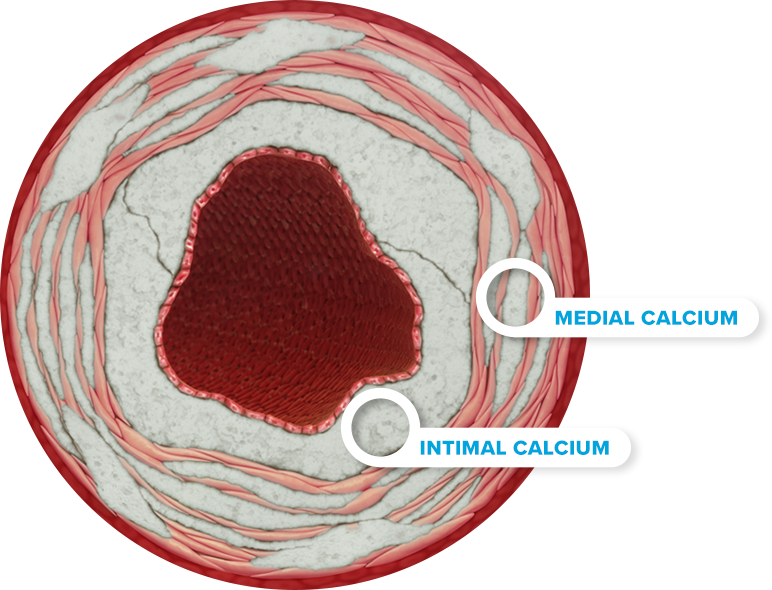
[…] for men health as it helps in strengthening of bones by promoting the absorption of calcium. Calcium is essential for the development of the bones to provide physical support to your […]